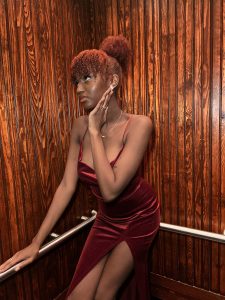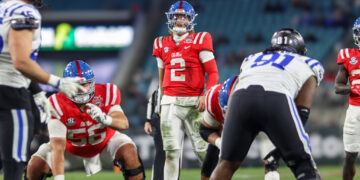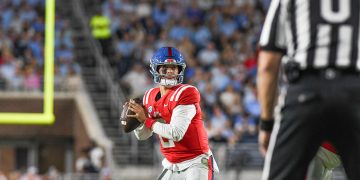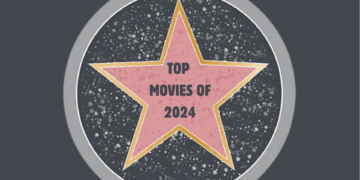
From the moment that African people first touched American soil, their hair was criticized for its non-adherence to western beauty standards. The expression of Black hair has been socially and systemically suppressed by several institutions, such as the United States Army. Thus, Black hair stands as a cultural symbol of resistance and unwavering love and pride in cultural identity.
Sophomore international studies major Fatimah Wansley shared that her hair is a form of self-expression.
“My natural hair is such a big part of the way I express myself. It’s what makes me feel beautiful and confident, and the way I do my hair is such an unmatched feeling,” Wansley said.
Junior math education student Caitlin Parker shared similar feelings about what her natural hair means to her.
“I feel like it’s a form of expression of who I am. To just be able to actually touch my hair, know that I can do it. That brightens my day,” Parker said.
The path to self-acceptance and love of natural hair is a collective experience shared by Black people. Known as the natural hair journey, this process involves finding just the right formula to retain length, preserve moisture and promote healthy hair growth. Due to the variations in curl grades and environment, this tedious process can take months and, in some cases, years.
“My natural hair journey has been extremely complex…I ended up doing a big chop when I was around 13 or 14, and it made me really insecure because I couldn’t do some of my favorite styles anymore,” Wansley said. “But time went on, I started watching natural hair influencers and followed some of their advice, and I started seeing results about two years in. After many, many keratin treatments and hundreds of dollars spent on products, my hair started to thrive and the healthier or longer it got, the more I wanted to wear it out.”
While enduring the daily stressors of managing their natural hair journey, Black people simultaneously navigate the social stressors of adapting to their natural hair with their friends, family and colleagues.
Parker pointed out experiences like this in her own natural hair journey.
“My grandpa would look at me sometimes and say, ‘Oh, that’s your real hair?’ It’s not like he was saying it in a curious manner but in a serious manner,” Parker said.
Despite these experiences, Black people still search for ways to protect and uplift their natural hair. Many Black women utilize certain hairstyles to protect their natural locks.
Oxonian braider and junior journalism major Chrishona Stanfield listed an array of benefits of protective styling on Black hair.
“I think I give Black women a chance to relax when it comes to dealing with their natural hair. For up to three months, they don’t have to worry about doing their hair. They can just get up and go while knowing they have a fresh hairdo,” Stanfield said. “Protective styling helps keep natural oils and moisture inside while not exposing it to the rough hair surrounding it, from humidity, heat, cold, etc. It allows Black women to have a stylish style while knowing their curls are well protected inside.”
Time and time again, Black hair has demonstrated the beauty of defying traditional western beauty standards and has paved the way for creative demonstrations of Black identity.
St. Clair Detrick-Jules, award-winning author of “My Beautiful Black Hair” and “My Hair Is Like the Sun,” admires the essence of Black hair.
“There’s so much to say about the beauty of Black hair — its versatility, its gravity-defying nature, its coils aligning with the helix of life itself, its power to transform both people and places,” Detrick-Jules said.
Detrick-Jules went on to share that what she loves most about Black hair is its ancestry.
“What I most love about Black hair is probably the way it expresses lineage. My hair is an inheritance from ancestors whose names I’ll never know, whose faces will never be stamped in old photos hanging on my wall,” Detrick-Jules said. “Though I won’t know who they are, I know they’re with me because I see them in my curls. Despite the discrimination against natural Black hair, I continue to find joy, love and power in it. Expressing my hair in its natural state is nothing but guidance from my ancestors and reminds me that I carry within me the gift of other lifetimes and places.”
The natural hair journey has led many members of the Black community to the experience of self-actualization and self-acceptance. The amalgamation of these occurrences has impacted the way that Black women think of themselves and the world around them.
“I feel like the journey has shaped me as being so dependent on myself. I used to be so dependent on others … It didn’t take me until I was 19 or 20 to feel I (didn’t) need their opinions to tell me what to post. I don’t need their opinions to tell me if my hair is beautiful … I am the leader of everything that I do in my life, so that’s where self-actualization came in,” Parker said.



























